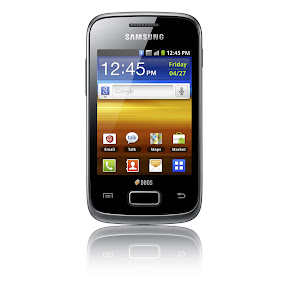Story via Cellular News >>
Mobile penetration rates in most developed markets are now well above 100%. In other words, the average person in countries such as Malaysia, the Czech Republic, Bulgaria, Germany, and Russia are juggling more than one mobile subscription, whether is be pre-paid or post-paid, or a combination of the two.
And a few countries such as Singapore, Portugal, Finland, Italy, and Greece are now pushing towards mobile penetration rates of 200%. These people are well-connected and know how to get the most out of a SIM card. Take a trip to Italy or Portugal and you'll witness how clever young people milk the network for every last drop of airtime.
So it should come as no surprise that, as the smartphone market develops, the dual-SIM smartphone market has begun to hit mainstream.
Some markets such as the Russian and Indian markets had been screaming for dual-SIM handsets for years until Samsung answered the call. So, which mainstream vendor is the first to market with dual-SIM smartphones? Of course it's Samsung.
Samsung just announced the GALAXY Y DUOS and the GALAXY Y Pro DUOS (PICS below), two reasonable-spec'd, Android-based, dual-SIM smartphones to be rolled out during the beginning of 2012.
Anyone who knows how the feature-phone market developed during the past five years realizes this is an incredibly obvious move. While these are not the first dual-SIM smartphones, they will likely be the devices that make the masses. Now we have to question, who will this hurt?
Vendors had better start looking for this gap in their portfolios, because there's no excuse in making the same mistake twice. That would be a dual dual mistake.
JK Shin, President of IT & Mobile Communications, Samsung: "With the tremendous success of the Dual SIM feature phones, we are now very pleased to be introducing the first Dual SIM smartphones powered by Android. We have been actively exploring this market and are well aware of the need for Dual SIM smartphones."
A duo of duals: Samsung's GALAXY Y DUOS & Y Pro DUOS:


1 comment:
Dual-SIM makes a lot of sense in smartphones, especially in business phones. I wonder why no one really thought of this before... one SIM for the home country, and one for the country traveling to. International roaming costs are a killer.
Post a Comment